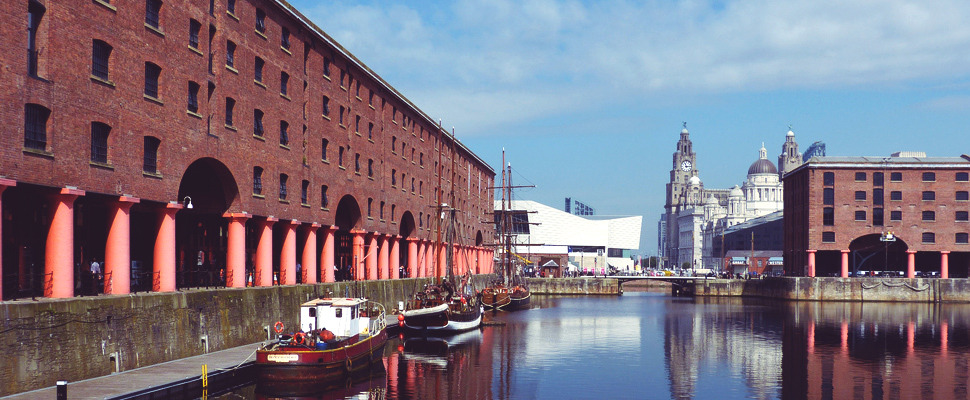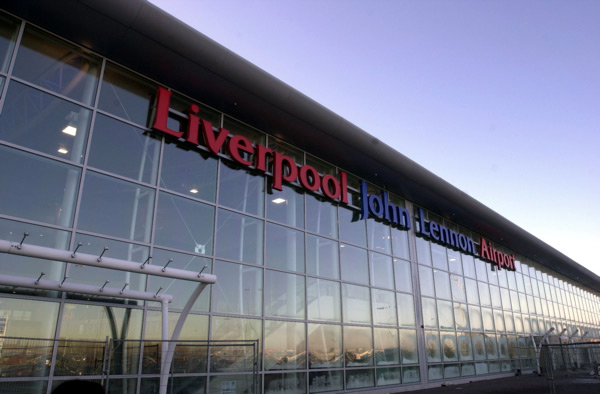Troubled Times for John Lennon Airport?
Two new routes for Liverpool's John Lennon Airport. Good news? Well, to a point...
Today, The Echo breathlessly reprinted a press release... sorry, wrote a feature… celebrating the fact that Ryanair has announced two new summer routes from Liverpool. To Poland and Croatia.
Airline boss Michael O’Leary said he hoped to increase the annual passenger numbers to three million in the next three years. But there is another story here.
This time last year, Ryanair opened its base at Manchester airport in a bid to compete with budget rivals Easyjet and Jet2.com. There was a time when Manchester airport sniffily ignored the advances of low-cost carriers. The travel world has changed - Manchester Airports Group now actively courts low-cost carriers, as holidaymakers move away from the traditional charter carriers (Airtours, Thomas Cook et al) that used to provide much of its business.
In the past 12 months following Ryanair’s Manchester opening, Liverpool John Lennon Airport has lost more Ryanair routes than any UK airport: seven in total. Conversely, Manchester has gained more routes than any UK airport - a full 21. They don’t mention that on the Echo press release.
Walk around town on any given weekend and you’ll hear more curious languages than in a Eurovision semi final heat. But for how long will Liverpool be able to rely on the lure of low-frills travel to bring punters to our city from all points East? For every plane out of John Lennon, there’s a plane in: bringing with it an estimated 10 million overseas tourists a year. It is our tourism lifeline. How many low-cost travellers into Manchester will ever make it here?
It’s a worry. With airlines falling from the sky at an alarming rate (not literally, but the industry is certainly going through a period of consolidation) John Lennon Airport’s niche as a regional economy hub is being tested like never before, as Ryanair and Easyjet eye up larger hubs with a greater population catchment area.
When Ryanair began flying from Manchester it was set to operate 26 routes by summer. In fact, it now operates 30. The carrier has invested £175 million at the airport with the new base operating up to 360 flights a week.
“Ryanair’s 2 million passengers p.a. will sustain up to 2,000 jobs at Manchester airport and in the surrounding region,” O’Leary bragged at the time.
Easyjet, too, have shaved four routes from Liverpool this year (from Gibralta ro Brussels, Canary Isles to Malta), despite claiming that John Lennon ‘will not suffer’ from their Manchester expansion plans.
Industry expert Paul Taylor told SevenStreets “In Britain easyJet obviously sees the best prospects at Gatwick, Manchester, Edinburgh and to a degree Bristol. They will get expansion. Stansted and Liverpool are likely to get cuts.”
“There will be a shuffle around of flights for Ryanair, but on the whole this is a mature market, with growth only coming where there’s a high break-even load factor,” he says, referring to the need for these flights to fly at as close to capacity as possible.
“Manchester benefits from having a 360 degree catchment area, and load-levels unsurpassed in the north of England,” he says.
With KLM’s trailblazing route from Liverpool to New York, via Amsterdam, dropped, and easyJet expansion plans favouring longer routes (such as its new Manchester-Reykjavik route) from larger hubs, it’s pleasing to see new routes for Liverpool. But it’s hardly time to crack open the in-flight bubbly.
We love Liverpool airport. Its role in our region’s development is vital, but maybe the low-fare model isn’t the panacea for its survival: a new report by the European Parliament is in no doubt that an over-reliance on low-cost operators could well prove counter-productive.
“The restrictive policies adopted by some low cost airline companies not only make travelling more difficult but they also have a negative impact on airport business and prejudice regional airport revenues,” the report says.
In particular the one-bag rule, and strict weight regulations, they say, represents a breach
of competition law and may constitute an abuse of a carrier’s position.
The future, surely, for Liverpool - and airports like it - is to offer keener prices for ancillary services (parking - £2 for every five minutes? What the…?). Making our airport more competitive, more enjoyable, and easier to use would surely add an edge over its competitors. Whatever the plan, we hope Peel are hatching one, and fast.
Airlines prefer to service large hubs where they know they’ll be able to fill planes multiple times during a day. Regional airports will always have a role to play. But, as with many other things, Liverpool’s geography - and its proximity to the hungry runways of Manchester - might well ground its expansion plans.
(We asked to speak to Liverpool John Lennon Airport, but they declined.)

























Pingback: Life in the Slow Lane | Sevenstreets